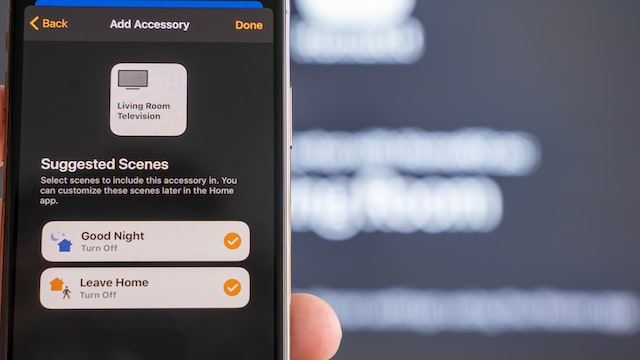
Hi, Alexa, please open my door! Well, that’s one of the home automation features.
The real estate industry has seen some significant transformations as a result of technological advancement. Because of the immense comfort, convenience, and security they provide, smart homes using Internet of Things (IoT) technology are currently fast growing in popularity.
One study from Statista shows that more than 400 million households will have smart home systems by 2025. This can be a great opportunity in the real estate industry.
So, what’s home automation? Let’s jump into the peek at home automation below.
What is home automation?
Home automation is building automation for the smart home. Lighting, entertainment systems, and appliances are just a few home features that a home automation system may monitor or control.
It can contain components of home security like alarm systems and access control. When connected to the internet, household appliances play a significant role in the IoT.
Typically, a home automation system links controlled items to a main smart home (gateway). Wall-mounted terminals, tablet or desktop computers, mobile apps or web apps that may also be accessible off-site over the internet are all options for the user interface for system control.
What makes home automation grow fast?
Home automation has become a popular trend in real estate because it can save homeowners and property managers a lot of time and cost. By automating many aspects of a home, such as turning on lights, heating, and cooling systems, and also controlling access to doors and windows, home automation can make life easier for everyone involved.
Further, some benefits of home automation can help people increase safety and efficiency.
The benefits of home automation
1. Convenience

Photo by Patrick Campanale on Unsplash
These connected things, such as smart security systems, speakers, doors, and TVs, can improve a home's efficiency. Monitoring a wide range of systems that are house-bound is another benefit of integrating smart home devices and systems.
Due to this connectivity, users can remotely manage and monitor thermostats, view the security camera footage, customise the interior and exterior lighting, and more without ever having to leave their workplaces or even kitchen tables.
2. Easy monitoring

Photo by Dan Nelson on Unsplash
Smart homes may be remotely monitored and managed at any time from anywhere if they are connected to a mobile device or personal computer. This makes it possible to check-in in real time on numerous aspects of users’ houses and properties. It's challenging to accurately measure what that level of protection represents to users. Real comfort comes from knowing that the home is secure.
3. Improved security

Photo by Miłosz Klinowski on Unsplash
Users may know exactly what's happening and receive real-time notifications on any suspicious events through the interconnected smart home technology. This includes features like security cameras and alarm systems, which may both be adjusted for devices, ensuring that users arrive home safely.
Additionally, users will have access to neighbourhood first responders and emergency personnel, who will send timely alerts to their smartphones whether they are at home or away.
4. Energy and utility management

Photo by Dan LeFebvre on Unsplash
Users can save costs by managing utilities like lighting, heating, and cooling. By setting the user’s thermostat in advance to a particular temperature at particular times of the day, the user can ensure comfort while conserving energy.
To control automatic shut-off for electronic gadgets like TVs, take into account smart outlets. For convenience and security, users of smart LED bulbs can program the on and off schedules of their lights.
5. Improved health and wellness
Home automation can help improve your health and wellness. For example, sleep quality by providing more reliable and efficient lighting and noise distribution. By turning off lights when users go to bed, users can get a good night’s sleep without being disturbed. Additionally, using voice commands or Amazon Echo devices can help automate activities like setting alarms and changing settings on users' home appliances.
6. Entertainment

Photo by BENCE BOROS on Unsplash
Another key component of home automation is an in-home audio system, which is a need for home entertainment systems that enable social interaction, connection, and quality time spent with loved ones and friends while providing a cinematic experience.
Users may host family members, celebrate special occasions in style, and remain secure and comfortable by incorporating smart elements into the user's home entertainment or theatre system. The best part is that users can manage key functions directly from their smartphones, which adds even more comfort and convenience.
Types of Home Automation
To get started in the home automation market, you’ll first need to know about different types of home automation systems. Here are some types of common uses of home automation:
- Appliances: A few of the devices you can control with your phone are your oven, vacuum, fan, fireplace, and air conditioner.
- Door: You can see who is at the door or open the door without getting off the sofa.
- Blind system: remotely control your home even if you're not home.
- Home alarm: Home automation system to monitor and record any activity in and around your house.
- Light: Using your smart device, you can dim or turn off your lights as you please.
- Thermostat: With a smart thermostat, you can always regulate the temperature of your house.
- Energy-saving tips: Keep track of how much electricity each appliance in the house uses, it can save money as a result.
Conclusion
Home automation is on the rise. Many people are looking for ways to automate their lives, and it’s one of the most popular options. By using various home automation features to help save users time and money, you can improve your life in a number of ways.
The options and possibilities in the fascinating new world of smart home technologies are effectively limitless. The options available and their effects on user's daily life will increase along with the growth of the smart home sector.
Because many people want convenience and efficiency in their lives through home automation, it’s a great opportunity for the real estate industry market. Are you interested in growing your digital real estate business? Discuss with VirtualSpirit experts to reach you in this growing industry.





